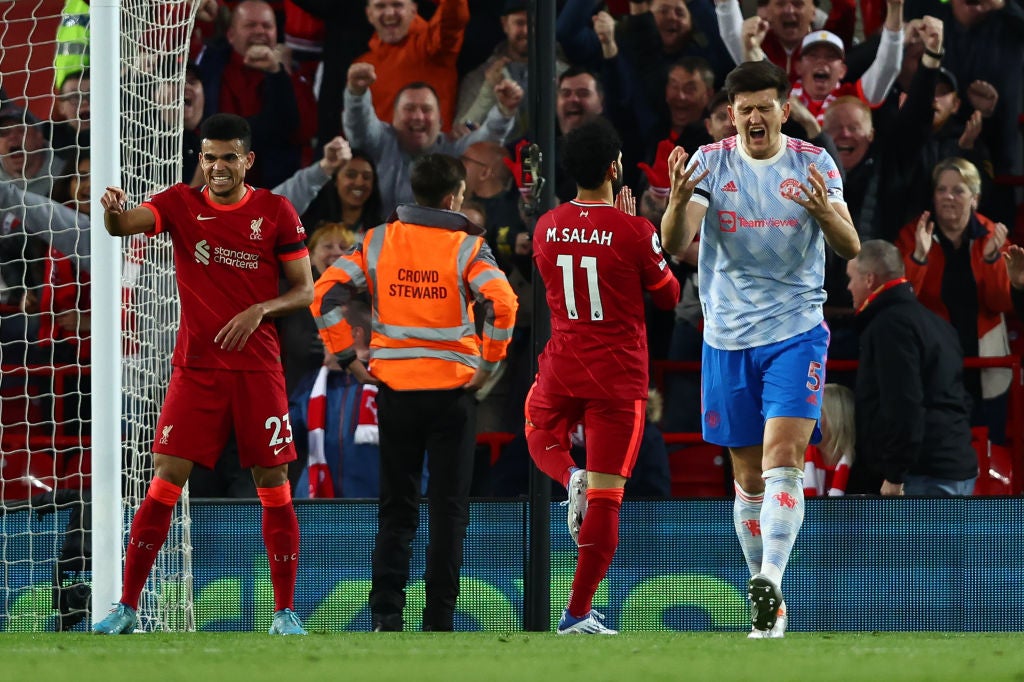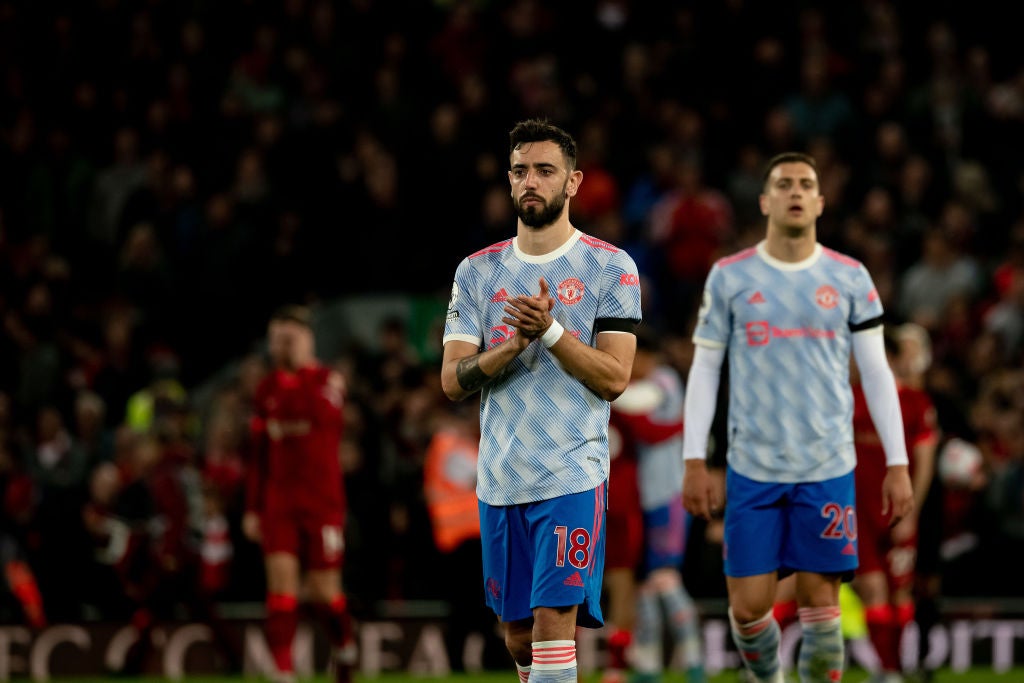Manchester United’s blueprint for transformation was right in front of their own eyes at Anfield
The gap between the two clubs has never been wider in the modern era but will United be mobile and perceptive enough to make the required changes?

Your support helps us to tell the story
From reproductive rights to climate change to Big Tech, The Independent is on the ground when the story is developing. Whether it's investigating the financials of Elon Musk's pro-Trump PAC or producing our latest documentary, 'The A Word', which shines a light on the American women fighting for reproductive rights, we know how important it is to parse out the facts from the messaging.
At such a critical moment in US history, we need reporters on the ground. Your donation allows us to keep sending journalists to speak to both sides of the story.
The Independent is trusted by Americans across the entire political spectrum. And unlike many other quality news outlets, we choose not to lock Americans out of our reporting and analysis with paywalls. We believe quality journalism should be available to everyone, paid for by those who can afford it.
Your support makes all the difference.It was a night so bad for Manchester United that they didn’t just concede four goals, but were seemingly set back a further four years.
On the day before this “humiliation” at Anfield, to use Ralph Rangnick’s own word, the German claimed it could take just two or three windows to get back to the top. By the end of it, he was talking about “six years”.
It was certainly a defeat of historic proportions. The biggest aggregate difference between United and Liverpool in the two games over a single season had been a mere five goals. That was almost doubled, to nine. Liverpool beat them by a combined score by 9-0 and that was despite the fact it felt like Jurgen Klopp's team “declared” in both games.
For Rangnick’s part, the trebling of the timescale was for slightly different outcomes. The first prediction was to just challenge. The second was to get to Liverpool’s kind of level, where they are a club so supremely run – with “25 Formula One racing cars” – that they are going for an unprecedented quadruple.
How long it actually takes, to get to either point, entirely depends on what United do next. This moment of crisis should be one of opportunity, because the extent of the problems should allow free rein, an opportunity to finally be frank about what is required. United no longer have to be anchored to Ed Woodward’s misguided ideas about how close they are.
Klopp, from the comfortable vantage point of embarrassing superiority, was able to be magnanimous. He refused to really criticise United’s display, say the game was easy, or even elaborate on their problems. Klopp’s restraint still revealed enough, though.
“We did what we had to do. United is obviously a difficult situation, look at the line-up, without their central midfielders. Then when you are in a difficult situation, you get another knock.”
He was referring to the injury to Paul Pogba but that substitution had already been preceded by the devastation of Liverpool’s opening goal, as facile as it was fluid.
Klopp didn’t want to get into talk about “humiliating opponents”, but acknowledged supporters will enjoy it while they can.
“I know it won't last forever,” the German said. “They'll strike back. They are too powerful.”
But are United perceptive enough, or self-critical enough?
This is why any discussion of Tuesday’s match inevitably evolved into discussion of the last decade.
Rangnick shouldn’t be spared criticism, and for all his insistence that the squad have not mentally checked out, it’s obvious many just aren’t responding to him. At the same time, a night like this – on top of so many like it – does not happen as a consequence of decisions made immediately before the game.
It’s also why some of the talk about United collapsing – in the way bad Liverpool or United teams of the past never did – or not having any fight is some way misplaced. This is a sport that has been constantly transformed in the last decade. It is much more systemised. That means that any elite team that has a finely tuned system can more easily beat one that is dysfunctional. It is more difficult for any individuals, no matter how inspirational or aggressive, to have the same rallying effect. The game is more scientific. If a team has a gap, it will be more difficult to bridge, and easier to exploit. You can't really dig in in the same way.
All of that also means that, really, there was only one lesson from this game. There is only one response that is really worth anything.

United should be thoroughly surveying how Liverpool got to this level, as well as every step they took since the 2010 takeover, and seek to update it for 2022.
This is the harsh reality. Rangnick has already relayed its broad principles.
“If you look at the two clubs who are dominating the Premier League, they brought in two managers but also changed the whole thing in terms of formation, what kind of players do they want to play, what kind of football do they want to play… the headline on everything was ‘how do you want to play?’”
In other words, they incorporated the intelligence to articulate a clear idea, and took every major decision from there.
That is how Liverpool got to this, and such a commanding victory. The absence of anything like that at Old Trafford is how United got to this, and such a chastening defeat.
It was one of the nights where the nature of the post-match discussion will naturally provoke questions over whether it was more down to Liverpool’s brilliance or United’s problems.
As inevitable as it might seem that the media focus on the negatives here, it’s impossible not to. Liverpool didn’t need to be that good. They didn’t need to push themselves. They looked so good, with people talking about a modern version of the 5-0 over Nottingham Forest in 1987-88, precisely because United afforded them the ample space to express themselves. It could not have been easier.
It should lead to obvious decisions about what next at Old Trafford. Then again, the reluctance to take such decisions has been one of the reasons United are where they are.
Join our commenting forum
Join thought-provoking conversations, follow other Independent readers and see their replies
Comments